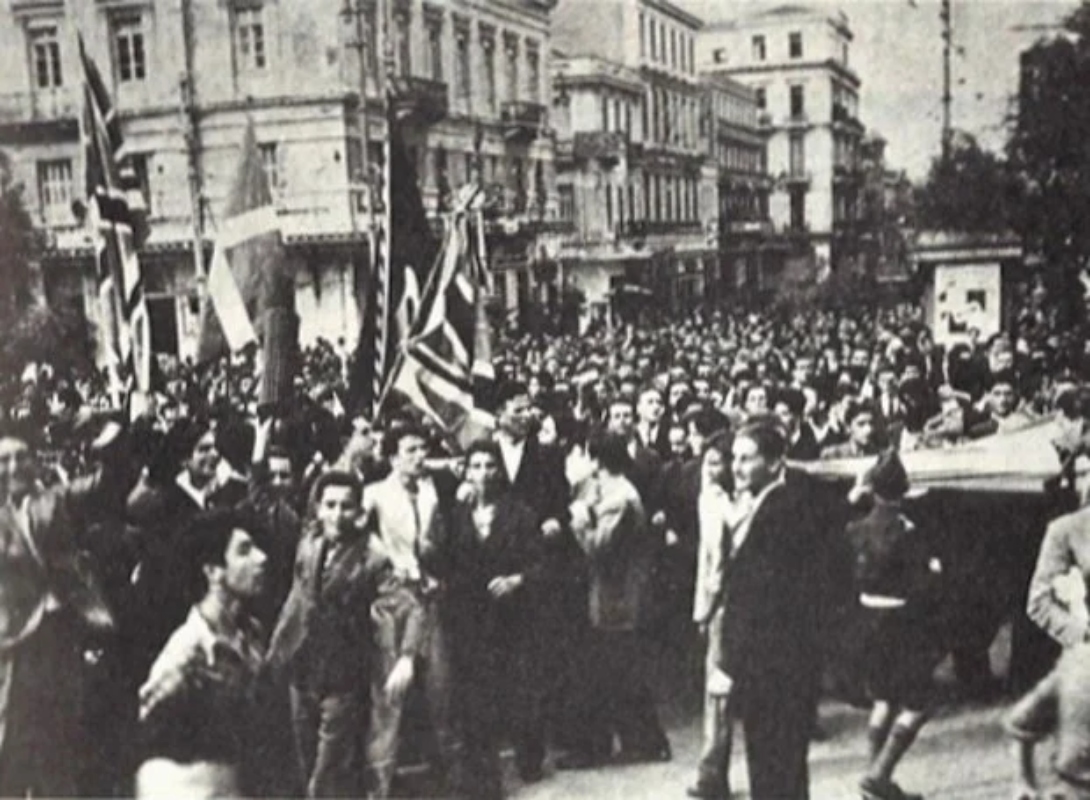The Final Retreat of the Nazi Forces
As the Soviet army advanced rapidly through the Balkans in the autumn of 1944, German forces in Greece found themselves trapped between the Allies’ advance and growing local resistance. Realizing the strategic futility of remaining, the Nazi command ordered a full withdrawal from southern Greece. The exodus began from the Peloponnese and the islands, and by October 12, 1944, the German troops had finally evacuated Athens and Piraeus.
That morning, under a clear blue sky, the Nazi flag — the hated swastika — was lowered from the Acropolis, where it had flown since the city’s occupation in 1941. For three long and harrowing years, it had been the symbol of subjugation, oppression, and hunger. Its removal marked a defining moment in Greek history — the rebirth of freedom in the country’s heart.
Athens Erupts in Celebration
As news of the German withdrawal spread, Athens erupted in joyous celebration. Church bells rang across the city, echoing through the narrow streets and hills. Greek flags appeared on balconies and rooftops, replacing the symbols of occupation. People flooded the avenues — men, women, and children — embracing, singing, and crying tears of joy.
It was a moment of collective catharsis. After years of famine, executions, and fear, Athenians finally reclaimed their city. The resistance fighters who had operated in secrecy now emerged in triumph, welcomed as heroes. In Syntagma Square, crowds gathered to witness history unfold, waving flags and shouting “Ζήτω η Ελευθερία!” — “Long live Freedom!”
The Shadow Beyond the Celebration
Yet, the euphoria of liberation was short-lived. Beneath the surface of joy lay deep political and ideological divisions that would soon erupt into conflict. As British and Greek government forces moved into the capital, tensions flared between them and the leftist resistance groups who had borne much of the burden of the fight against the Nazis. Within weeks, Athens would descend into the December 1944 clashes (the Dekemvriana) — the opening act of Greece’s long and painful civil conflict.
The day of liberation, therefore, stands as both a symbol of freedom and a poignant reminder of the struggles that followed. The victory over fascism did not immediately bring unity or peace. Instead, Greece faced the difficult task of rebuilding a fractured nation.
A Day of Memory and Meaning
While October 28, the “Ohi Day,” remains Greece’s official World War II commemoration, October 12 has gained growing recognition as Athens’ Day of Liberation. Each year, ceremonies are held across the city — at the Acropolis, Syntagma Square, and sites of wartime suffering — honoring those who resisted occupation and those who perished under it.
For Athenians, it is a day to remember that freedom, once lost, is hard-won and must be safeguarded. The image of the swastika being lowered from the Acropolis remains etched in the nation’s memory — a timeless symbol of resilience, courage, and the enduring spirit of a people who refused to surrender.
Source: pagenews.gr
